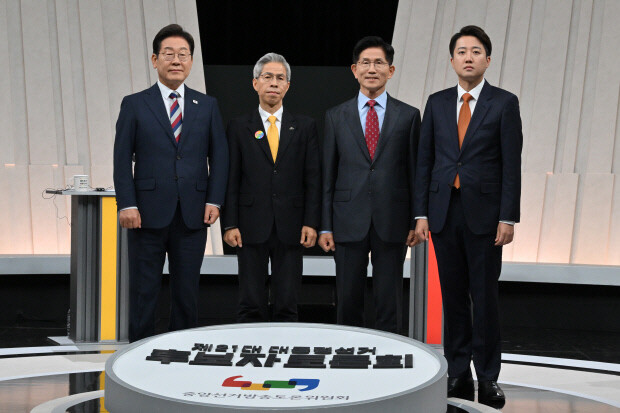
Watching the three televised debates leading up to the upcoming presidential election, I believe many citizens, like myself, must have felt disappointment and concern. These debates should have been a platform to show how the next president would manage the nation's affairs and what vision and policies they would use to persuade the public. However, what we witnessed was not a competition of policies and visions, but a mudslinging match marred by mutual slander and negative campaigning. The remarks and attitudes of some candidates raised doubts about their character, dignity, and qualifications as leaders, which is a serious sign that makes us worry about the future of South Korea.
TV debates are not merely a battle of wits among candidates. They are a stage for discussing critical national issues before the public, presenting solutions, and demonstrating a leader's sense of responsibility. Yet, in these debates, instead of in-depth policy discussions or concrete plans to improve citizens' lives, there was a prominent focus on exploiting opponents' weaknesses. This doesn't mean criticism should be absent. Constructive criticism is crucial to democracy. However, negativity aimed solely at denigrating an opponent, distorting facts, or provoking emotions, undermines the essence of the debate and erodes public trust.
The attitudes displayed by some candidates, in particular, caused not just disappointment but anger. The basic dignity and moral responsibility expected of a leader were nowhere to be found. Only shallow strategies aimed at attacking opponents and promoting one's own image ran rampant. One cannot help but question whether such candidates are qualified to hold the nation's highest office. The presidency is not just about wielding power; it is about leading the nation, uniting its people, and designing its future. Yet, their words and actions in the debates left questions about their qualifications to represent the people.
The responsibility for this situation doesn't lie solely with the candidates. The structural problems within the political sphere as a whole cannot be overlooked. Political parties have repeatedly made irresponsible choices, focusing on internal power struggles or short-term popularity rather than putting forth candidates who can earn public trust. The media, too, has been eager to highlight provocative scenes and controversies, contributing to conflict rather than encouraging policy-centric discussions. Furthermore, we, the public, must deeply reflect. What kind of leader do we truly want? Will we be swayed by provocative words and actions, or will we choose a leader who genuinely presents a vision for the nation?
The upcoming presidential election is not merely an event to elect one person. It is a crucial choice that will determine the future of South Korea. To resolve the mountain of challenges in the economy, security, education, welfare, and other areas, we need the unified strength of the people and a capable leader to guide it. However, after watching these debates, anxiety has grown about who can truly fulfill that responsibility. It is time for candidates to stop negative campaigning and slander, and instead present the policies and visions the public truly desires. And we, the public, must carefully scrutinize every word and action of the candidates to make a wise choice.
Elections are a festival of democracy. However, this festival must not degenerate into the clamor of scarecrows. The ugly truth of these debates serves as a stark warning to us all. Only when politicians, political parties, the media, and the public all fulfill their roles can we truly open the door to a hopeful future. As the presidential election approaches, it is time for all of us to contemplate and act for a better choice.
[Copyright (c) Global Economic Times. All Rights Reserved.]



























